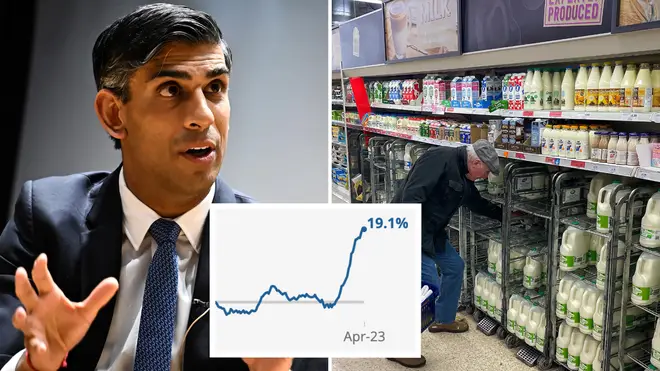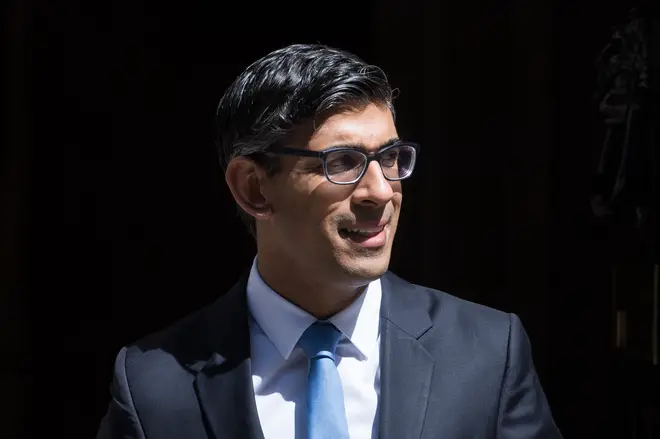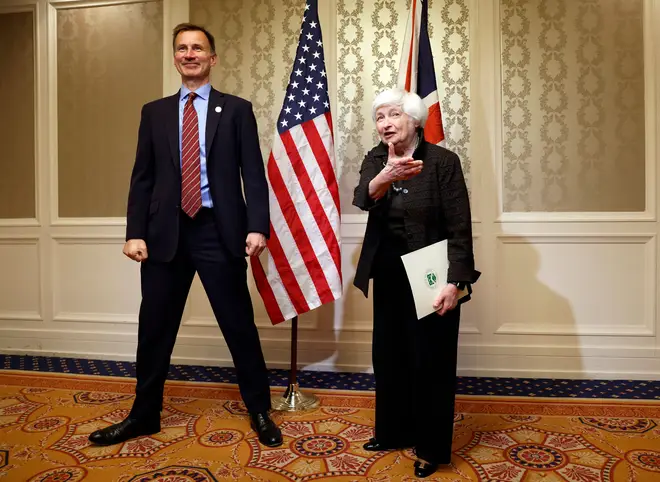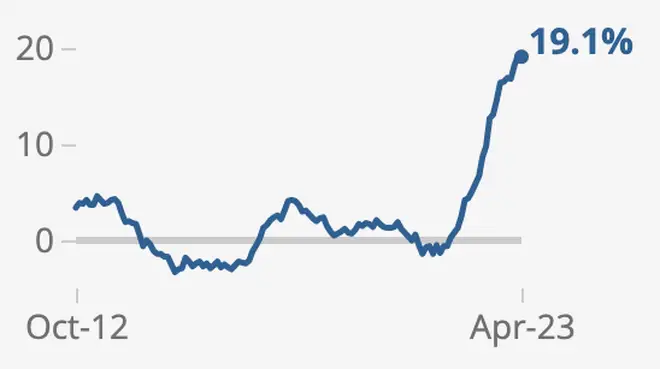
Clive Bull 1am - 4am
28 May 2023, 11:00 | Updated: 28 May 2023, 11:57

Rishi Sunak will ask supermarkets to introduce price caps on basic items such as bread and milk as food inflation continues to remain "worryingly high".
Aides inside Downing Street are drawing up policy plans similar to that which have been adopted in France, where supermarkets charge the "lowest possible amount" for basic food items.
The policy is not expected to be mandatory, with No10 saying that any proposals would be optional for UK supermarkets.
It comes as figures released this week showed inflation has fallen to single digits for the first time since August.
But food inflation remains "worryingly high" and at 19.1 per cent, it is close to reaching a record high.
Listen and subscribe to Unprecedented: Inside Downing Street on Global Player

A Treasury source told The Telegraph: "Food inflation is much more resilient and difficult to get rid of than we anticipated."
The government originally believed inflation would fall faster, throwing Mr Sunak's plans to cut taxes before the next election into doubt.
A Cabinet source said: “If you haven’t got growth you haven’t got the money [for tax cuts], it’s as simple as that.”
Speaking after the latest inflation figures, Chancellor Jeremy Hunt said: “The IMF said yesterday we've acted decisively to tackle inflation but although it is positive that it is now in single digits, food prices are still rising too fast.
"So as well as helping families with around £3,000 of cost of living support this year and last, we must stick resolutely to the plan to get inflation down.”
Mr Hunt said this week that he would accept Britain entering a recession if it meant inflation was to come down.
There is some concern, however, that plans to ask supermarkets to cap the price of basic food items would be "anti-market".
One source told the publication: "It’s very easy to point the finger at retailers and say they are making a fortune, but some of the margins they are operating at are not that big. It is quite tight."

Read More: Food inflation ‘is too high’, PM says, as SNP warn of ‘cost-of-greed crisis’
With the overall rate of inflation falling to 8.7 per cent, the Office for National Statistics (ONS) said the decrease was mainly driven by gas and electricity costs remaining stable in April.
It is the first time the CPI has been below 10 per cent in eight months.

Overall food prices are surging in price, though some staple products - such as bread and milk - are rising slightly less quickly.
Over the last 12 months, the average price of granulated sugar has increased by 47 per cent - now standing at an average price of £1.08 - while cheddar cheese prices have soared by 39 per cent (£3.77)